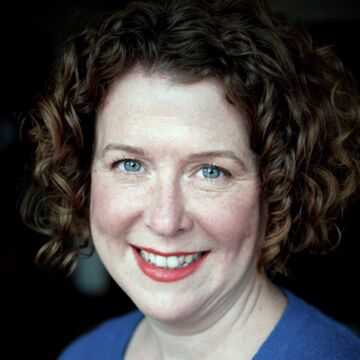| FYS I:Writing from Art |
Liberal Arts |
1001 (026) |
Fall 2025 |
|
Description
Painting, sculpture, film, music, literature. In this course students will use both their own and the creative works of others as the starting point for their papers. Through critical reading, visits to the museum, and process-oriented writing, students will learn the craft of essay writing. Texts include works by John Cage, Gertrude Stein, and Honoré de Balzac.
|
Class Number
1363
Credits
3
|
| FYS II: Cyber Feminism |
Liberal Arts |
1005 (004) |
Spring 2026 |
|
Description
Cyber Feminisms explores the intersections of feminism, technology, and digital culture through a research-driven lens. Students will critically engage with a range of topics, including the influence of digital spaces on gender identities, the consequences of algorithmic bias, and the ways marginalized communities use technology for resistance and self-expression. This course will analyze the role of the internet in shaping feminist discourse while developing digital literacies essential for academic writing in the 21st century. Students should expect to write 20 to 25 pages of formal, revisable writing (i.e. a semester-long research-based essay with multiple drafts) as well as homework exercises and in-class writing. Much in-class writing will be included, as emphasis is on development of the intellectual skills of reading and responding critically, which forms the basis of each student's career at SAIC. Furthermore, peer review of student papers, and individual meetings to discuss each student¿s writing should be expected.
|
Class Number
1360
Credits
3
|
| FYS II: Queer Pop Culture |
Liberal Arts |
1005 (017) |
Spring 2026 |
|
Description
The influence of the Queer voice in popular culture is undeniable, significantly shaping societal norms. Queer artists influence how gender and sexuality are perceived and represented even by those who do not identify as Queer. Using concepts from Queer Theory, this course will consider a variety of media¿including visual art, film, television, literature, and music. Student essays will investigate the role Queer voices play in contemporary culture. Assignments include critical reading of a variety of texts, essay writing with an emphasis on revision, and a concluding research paper and presentation.
|
Class Number
1320
Credits
3
|
| Cont Narr:Queer Literature |
Liberal Arts |
3105 (002) |
Fall 2025 |
|
Description
American and European literary tradition has long included authors that contemporary readers would recognize as queer. Yet works that openly address queer sexualities and gender are relatively new. In this course students read a variety of works starting from ?the invention of homosexuality? (1890s) to the present with particular focus on issues germane to the genre: societal constraints on content, the subtext of cloaked sexuality, and authorial responsibility to the queer community. Assignments include two 10-page literary analysis papers. Readings include works by Walt Whitman, James Baldwin, and Susan Sontag.
|
Class Number
1513
Credits
3
|
| Cont Narr: Cripping the Narrative |
Liberal Arts |
3105 (003) |
Fall 2025 |
|
Description
Crip Theory, an intersection of Disability Studies and Queer Theory, forms the theoretical groundwork for this course. Students analyze how works of literature and art reshape traditional storytelling and representations of disability and nonnormativity. Through critical engagement with a variety of texts, students will investigate how experiences of disability influence and transform our narratives. As they engage with literature, art, and theory, students will uncover the ways creative works confront power dynamics, promote inclusivity, and further the goal of social justice.
|
Class Number
2487
Credits
3
|

